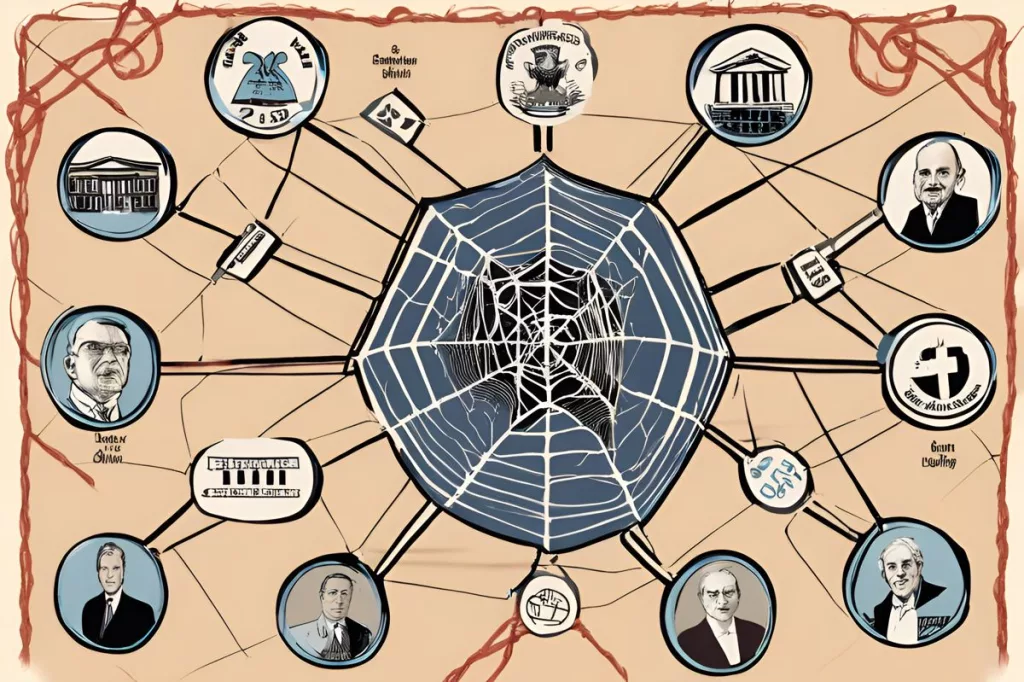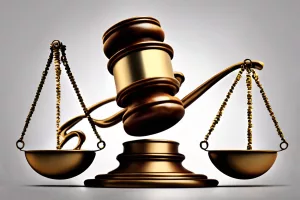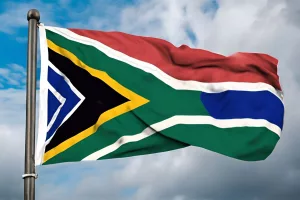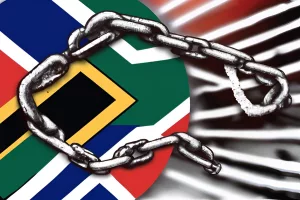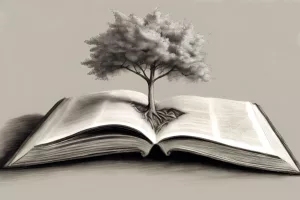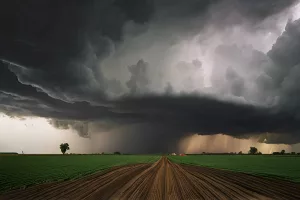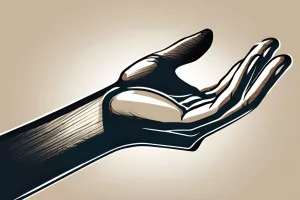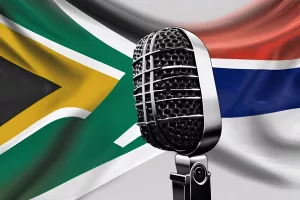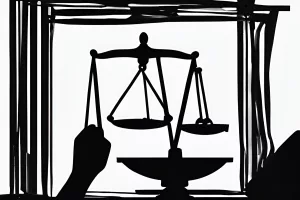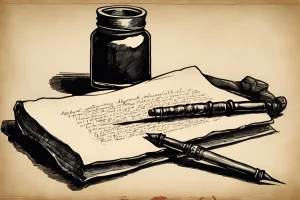The Economic Freedom Fighters (EFF) are raising serious questions about Agriculture Minister John Steenhuisen’s hiring choices, claiming he brought in people who aren’t qualified for their jobs. This situation has sparked a larger conversation about honesty and responsibility in South African politics. The EFF is pushing for a closer look at Steenhuisen’s actions, especially after a controversial appointment of a divisive figure as his chief of staff. As this drama unfolds, it highlights the ongoing struggle for ethical leadership in government and the importance of holding leaders accountable for their decisions.
In the colorful world of South African politics, Advocate Busisiwe Mkhwebane’s recent social media comments have sparked a lively debate about the duties of public officials. These officials, as guided by the Constitution, must respect dignity, equality, and unity, balancing their personal opinions with their public responsibilities. Mkhwebane’s remarks, seen by many as unfair criticism of Parliament’s legal advisors, highlight the importance of maintaining trust and integrity in democracy. The incident reminds everyone that while social media can amplify voices, it also comes with the responsibility to uplift and protect democratic values. As South Africa continues its journey toward inclusivity, the role of Parliament in upholding these ideals remains crucial.
Pravin Gordhan was a brave leader who stood strong against corruption, leaving a legacy of integrity and moral courage for South Africa’s African National Congress (ANC). His life inspired the ANC to seek renewal, focusing on staying true to its core values of justice and accountability. As the party remembers Gordhan, it also commits to a challenging journey of transformation, aiming to become a true voice for the people once again. His story is a guiding light, reminding everyone that real leadership means holding onto your beliefs, no matter the obstacles.
President Cyril Ramaphosa dispelled rumors of Julius Malema’s alleged pitch for the Deputy President’s position, stating that Malema had never proposed himself for the role. Malema endorsed Veronica Mente for the Deputy Speaker’s role, emphasizing his demands for governmental accountability. Despite his aspirations for a significant governmental role, the EFF’s rank dropped to fourth among South Africa’s political parties, dashing Malema’s ambitions.
Jabulani Khumalo is a controversial figure in South African politics, known for his dramatic rise and fall within the MK Party. He started with big dreams of unity but faced harsh battles, including his expulsion from the party and a fierce struggle over its assets. Khumalo accused former President Jacob Zuma of trying to take over the party, leading to a messy legal fight that caught national attention. His story reflects the messy world of politics, showing how power struggles and disagreements can shake even the most hopeful leaders.
Professor Muse Nkondo was a towering figure in South Africa’s political and academic arena, with a legacy that permeates essential sectors like tourism and public administration. He was a defender of human rights and an exceptional advocate for social cohesion and unity. His wisdom and teachings will continue to guide South Africans towards a brighter and more prosperous future. As we honor Professor Nkondo, let’s strive to replicate his dedication, commitment, and enthusiasm, and advance his legacy of unity, social cohesion, and nationbuilding.
Roman Cabanac is a divisive figure in South African politics, known for his conservative views and podcast, Morning Shot. Recently appointed as Chief of Staff in the office of Agriculture Minister John Steenhuisen, Cabanac’s rise to power has stirred controversy due to his interviews with guests holding extremist views and his negative opinions on the state of South African politics. His appointment highlights the changing dynamics within the political party and the ongoing instability of the South African political scene.
John Steenhuisen’s lack of formal education has been a subject of criticism in South African politics, but it has not hindered his rise to the leadership of the Democratic Alliance. Steenhuisen’s political path is marked by an unflagging commitment to public service rather than academic accomplishments. His sharp comebacks to critics demonstrate his belief that moral uprightness should be the key measure of public service. Steenhuisen’s career serves as a testament to the idea that success in politics is not always linked to conventional educational routes.
The African National Congress (ANC) is holding a virtual disciplinary proceeding against expresident Jacob Zuma for breaching party rules, marking a significant juncture in South Africa’s political scene. The hearing was moved online due to safety concerns, and Zuma’s endorsement of a rival party has created tension within the ANC. The outcome of the hearing will have broader implications for the future trajectory of the ANC and the evolution of South Africa’s political landscape.
Ringo Madlingozi is a famous Afropop musician from South Africa who briefly entered politics in 2019 as a member of the Economic Freedom Fighters (EFF) party. He resonated with the party’s emphasis on land expropriation without compensation but announced his retreat from politics in mid2021 to reaffirm his dedication to his music. Madlingozi’s tale serves as a reminder of the transformative potential of selfexpression, whether through music or political rhetoric, and his journey from music to politics and back offers a unique narrative in South Africa’s political and cultural landscape.
Sisisi Tolashe is the new Minister of Social Development in South Africa, tasked with overseeing the South African Social Security Agency (SASSA) grants and the Department of Social Development (DSD). She faces significant challenges, including streamlining the payment method for SASSA grants and potentially rolling out a Basic Income Grant in the future. With her political and public service experience, Tolashe and her deputy, Ganief Hendricks, offer a beacon of hope for South Africa’s most vulnerable citizens, despite the daunting tasks that lie ahead.
South Africa witnessed a historic event with the inaugural session of the National Council of Provinces (NCOP) on June 15th, 2024. The NCOP comprises 54 representatives from all nine provinces, pledging to serve the South African population. Ms. Refilwe MtshweniTsipane from the Mpumalanga province was unanimously elected as Chairperson, while Mr. Kenneth Mmoiemang was elected as Chief Whip. The NCOP embodies the principles of inclusive and democratic governance, prioritizing provincial representation over personal political aspirations.
South African politics has shifted with the appointment of Thokozile Didiza as Speaker and Annelie Lotriet as Deputy Speaker of the National Assembly. Didiza has held several prominent roles in parliament, while Lotriet brings a wealth of experience as a member of the Democratic Alliance. Their election marks a new era in South African politics, with both women bringing expertise and academic credentials to their positions.
The Democratic Alliance is challenging President Cyril Ramaphosa, alleging that he has used his executive position for political gain. The tension between a public office’s responsibilities to citizens and the potential for misuse is a global theme, highlighting the importance of political opposition in holding power accountable. This power struggle in South Africa exposes the intricate dynamics of political maneuvering in a democratic society and the pivotal role of opposition parties in upholding democracy.
Get a glimpse into the heart of South African politics as the country prepares for the South African Legislative Sector’s Forum, a significant event where authorities from all nine provincial legislatures meet to strategize and reflect. The forum’s leadership steers the legislative sector, ensuring that the sector’s initiatives align with the country’s needs. The session involves discussions of the 7th Parliament’s and Provincial Legislatures’ arrival and the presentation of legacy reports from the 6th parliamentary tenure. Although the forum is an internal gathering, the South African Parliamentary Institute shares its report and training agenda for Members of Parliament and officials for the upcoming tenure.
Ms. Nosiviwe MapisaNqakula resigned as the Speaker of the National Assembly and a Member of Parliament due to her strong belief in the credibility and responsibilities of Parliament and the laws of South Africa. Her resignation has caused a significant shakeup in South African parliamentary politics and sparked much analysis and conversation. Understanding the role of the Speaker in the legislative process is crucial in appreciating the weight of her resignation. Despite the transition, the Parliament remains dedicated to the service of the South African people and the preservation of the country’s legal structure.

